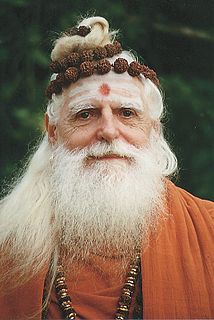A Quote by Edmund Spenser
For if good were not praised more than ill,
None would chuse goodness of his own free will.
Related Quotes
Men who have flattered themselves into this opinion of their own abilities, look down on all who waste their lives over books, as a race of inferior beings condemned by nature to perpetual pupilage, and fruitlessly endeavouring to remedy their barrenness by incessant cultivation, or succour their feebleness by subsidiary strength. They presume that none would be more industrious than they, if they were not more sensible of deficiences; and readily conclude, that he who places no confidence in his own powers owes his modesty only to his weakness.
If the moon, in the act of completing its eternal way around the earth, were gifted with self-consciousness, it would feel thoroughly convinced that it was traveling its way of its own accord on the strength of a resolution taken once and for all. So would a Being, endowed with higher insight and more perfect intelligence, watching man and his doings, smile about man's illusion that he was acting according to his own free will.
Goodness was more difficult than evil. Evil men knew that more than good men. That's why they became evil. That's why it stuck with them. Evil was for those who could never reach the truth. It was a mask for stupidity and lack of love. Even if people laughed at the notion of goodness, if they found it sentimental, or nostalgic, it didn't matter -- it was none of those things, he said, and it had to be fought for.
Karma is not fate, for man acts with free will, creating his own destiny. The Vedas tell us, if we sow goodness, we will reap goodness; if we sow evil, we will reap evil. Karma refers to the totality of our actions and their concomitant reactions in this and previous lives, all of which determines our future.
Slowly, very slowly, he sat up, and as he did so he felt more alive, and more aware of his own living body than ever before. Why had he never appreciated what a miracle he was, brain and nerve and bounding heart? It would all be gone...or at least, he would be gone from it. His breath came slow and deep, and his mouth and throat were completely dry, but so were his eyes.
It is due to neither impotence nor ignorance on God’s part that evils occur in the world, but it is owing to the order of his wisdom and to the greatness of his goodness, whence come the many and divers grades of goodness in things, many of which would be lacking were he to allow no evil to exist. Thus there would be no good of patience without the evil of persecution, nor the good of the preservation of its life in a lion, without the evil of the destruction of the animals on which it lives.




































